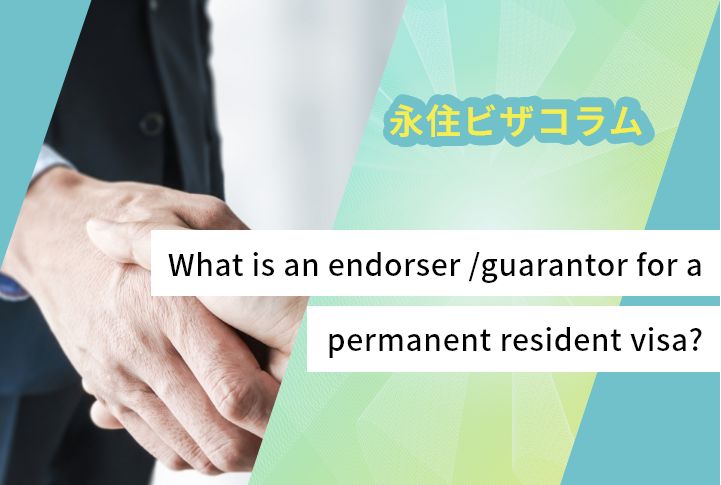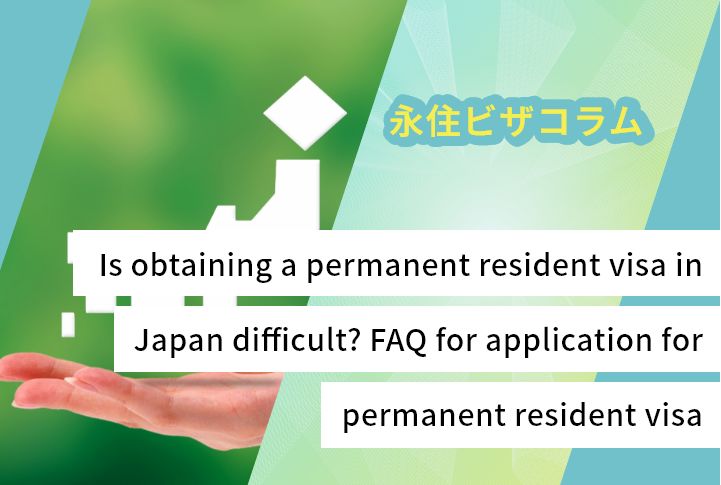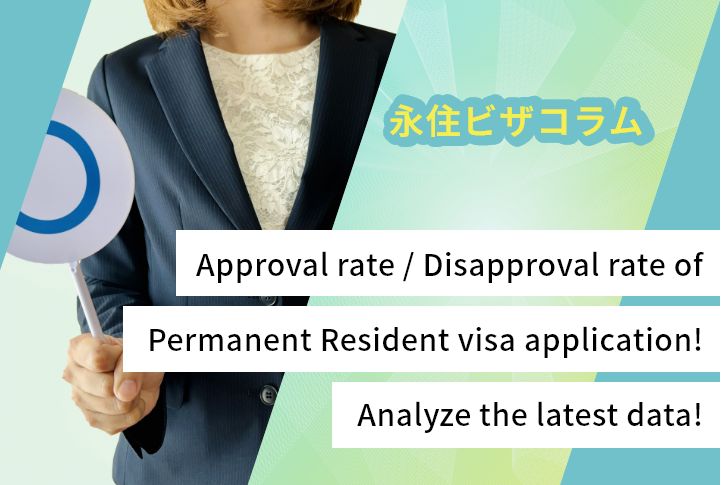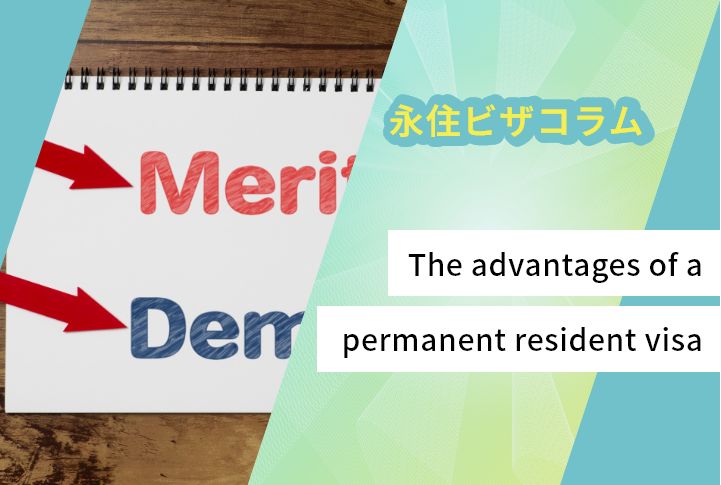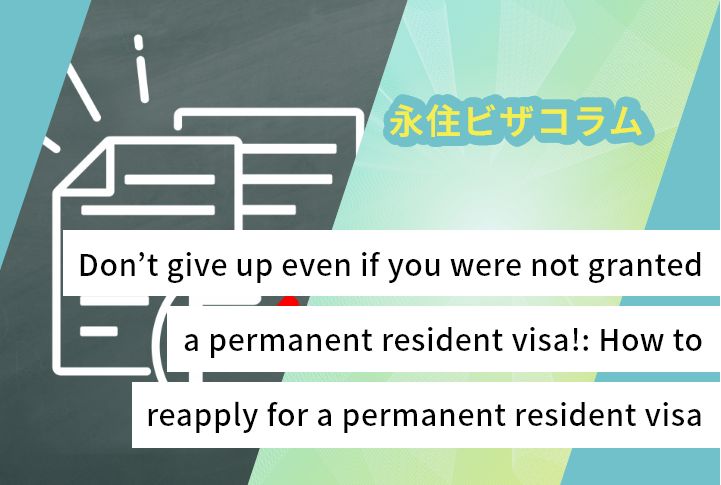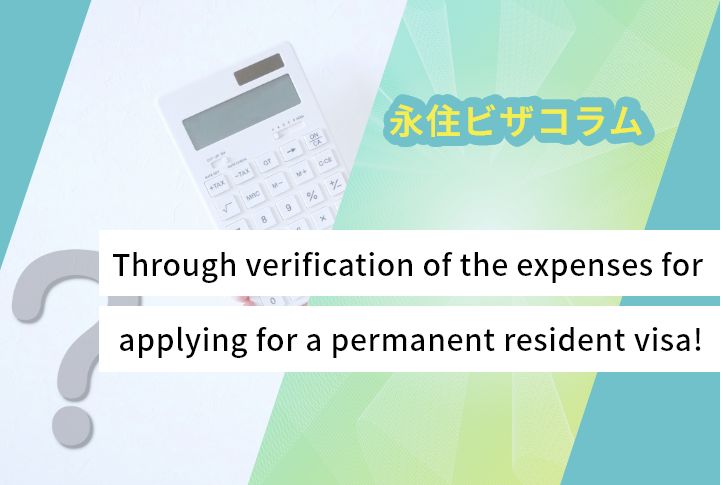【Case Study】The relationship between permission for permanent residence and income
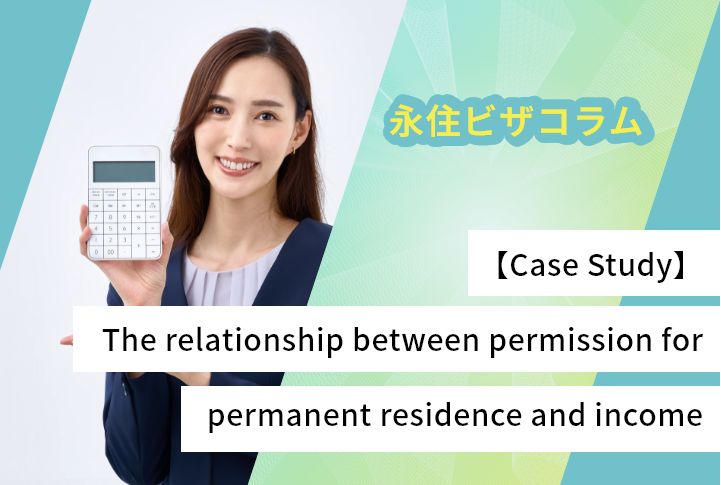
Mr. A, who is Chinese, came to Japan 5 years ago on a visa for engineer/specialist in humanities/ international services, and currently works in sales at a Japanese manufacturing company. His income decreased as he changed his job 2 years ago. His annual income 2 years ago was 2.6 million yen, and his last year income was 3.5 million. 4 years ago, Mr. A got married to Ms. B, who is Chinese, and they have no children. Ms. B originally had a work visa, but changed to a dependent visa. Now she works part time and earns about 70,000 yen per month.
While Mr. A is considering about applying for permission for permanent residence, he wonders if his changing a job affects the examination of application as his income has decreased after the job change. He hopes that the wages of Ms. B will cover such decrease in income in the judgement of financial stability. Is such scheme going to be accepted?
This time, we would like to focus on the relationship between permission for permanent residence and income.
Index
1.Introduction
Since July 1, 2019, as a part of the documents required to apply for permission for permanent residence, the income certificate of the most recent 5 years (, which used to be 3 years,) has been required as a material to prove the status of income of the applicant or the person supporting the applicant. As such, such material must clarify the family finance for a longer period than before, and the examination on financial stability therefore became stricter.
Many of those who have a work visa for “Engineer/Specialist in Humanities/ International Services,” etc. have been seeking to apply for permission for permanent residence sooner than it used to be since the examination has become stricter and the number of documents required to submit has increased.
Also, as the examination on permanent residency became more severe, more cases are rejected today although they could have been accepted under the previous immigration practice.
Among the questions we daily receive from those who consider getting permeant residency, the biggest matters of concern seem to be 1) the likelihood of obtaining permanent residency, and 2) the expected time frame of grant of permanent residency.
Especially, we are often asked questions as to the relationship between income and the permission for permanent residence. There are number of cases where the likelihood of obtaining permanent residency becomes lower or the applicant postpones the submission of application because of the applicant’s income situation.
Therefore, we would like to focus on the relationship between permission for permanent residence and income, in this article.
2. Applying for permission for permanent residence
What are the requirements for permission for permanent residency? The Immigration Act provides as follows:
(Article 22, paragraph 2 Permission for Permanent Residence)
“… the Foreign National conforms to the following items and that their permanent residence will be in accordance with the interests of Japan; provided, however, that the following items do not have to be conformed to in the case of spouses and children of Japanese nationals, of residents with permanent residence status or of Special Permanent Residents:
(i) the Foreign National’s behavior and conduct must be good; and
(ii) the Foreign National must have sufficient assets or skills to make an independent living.”
In this article, we focus on the relationship between permission for permanent residence and income, so we will not talk about other requirements. As to the income requirement, the only reference made in the Immigration Act is that “the Foreign National must have sufficient assets or skills to make an independent living,” and does not specify any amount of income or savings required.
By describing that “the Foreign National must have sufficient assets or skills to make an independent living” to apply for permission for permanent residence, it means that the person does not financially depend on someone in the society in his/her daily life, and his/her assets or ability, etc. are assumed to continue to provide him/her with a stable base of livelihood into the future.
It is pretty imaginable that this ambiguous provision will be a great distress to those who are going to apply for permission for permanent residency.
3.Income
In this section, we would like to explain as to income requirements for application for permanent residence by case.
(1) In case of a single-person household on work visa
If the applicant is a work visa holder in a single-person household, 3 million yen is one standard for annual income in the examination pertaining to permanent residency. However, it’s not the definite standard and the application can be rejected depending on the makeup of the family, dependents, years of work, etc. even in cases where the income is more than 3 million yen.
For example, in case of a work visa holder in a single-person household with income of 3 million yen or more, if he has 4 dependents who belong to other household, it is highly possible that 3 million yen is not regarded to be enough income. Moreover, even in case of income being more than 3 million yen, if the job has been just changed, the stability of working status can be considered low, which leads to the rejection of the application for permission for permanent residency.
Thus, there are various matters to be considered and it is difficult to say any amount is sufficient for permission for permanent residency, but in case of a work visa holder in a single-person household, 3 million yen is considered as the general standard.
(2) In case of a work visa and a dependent visa
Here, we would like to verify a case where the husband has a work visa while the wife works part time on a dependent visa, just like the case of Mr. A. If the annual income of the husband is 2.4 million yen and that of the wife is 600,000 yen, would it be considered as 3-million-yen income per year in the judgement regarding permanent residency of the husband as the total income of the household is 3 million yen?
The answer is such wages made under a dependent visa is not included in principle, although this may vary depending on each immigration office and the individual situation. It is because that a dependent visa is not a work visa and doesn’t allow its holder to work, in principle. Besides, part time jobs are not considered as a source of stable income. So, please do not include your wife’s wages, and use your income only for the calculation.
(3) In case of double work visas
Let’s look at a case where the husband and wife both have a work visa, or so-called tomobataraki-setai (i.e. a dual income household). For example, if the husband has annual income of 2.6 million yen and the wife also has annual income of 2.6 million yen, there is a possibility that the examination regarding permanent resident is conducted based on the total income of the household.
It is because that they are both on a work visa, which is different from the case of above (2), and it is expected that the income of the household is and will be stable as they both work stably. Hence, if the working statuses of the husband and wife are solid, it can be said that the income requirements for examination for permission for permanent residence are fulfilled.
Please note, however, that if the income of either the husband or wife is very low, the working status of the person can be considered as non-stable. In such case, the basis for the judgement on income requirements will be the income of the applicant only and not the income of the whole household.
(4) In case of a spouse visa
The statuses of residence of “Spouse or Child of Japanese National,” “Spouse or Child of Permanent Resident,” and “Long-Term Resident” are called the status types of visas, which are granted based on the positions and statuses of the applicants. In other words, these are the visas for those who have the strongest bonds with Japan. Accordingly, compared with work visas as mentioned above, holders of such status types of visas have advantages in the judgement regarding the income requirements for permission for permanent residence.
To be more specific, an applicant whose spouse is Japanese can be granted a permanent resident visa even if he/she does not meet the requirement of income of 3 million yen. Moreover, the total income of the whole household including wages from a part time job can be subject to the examination, unlike the case of above (2) where the judgement was not made based on the total income of the household.
Thus, if you have a status type of visa, the income requirements are softened comparing to a work visa, which is one of the biggest characteristics of tatus type of visas.
(5) Summary
In case of applying for permission for permanent residence, the results of judgement vary depending on the type of visa you have, the number of dependents you support, the type of spouse visa you have, and so on.
Sometimes we are asked if the requirement of independent living is fulfilled when the person has income abroad or enough savings, but it is difficult to obtain permanent residency based on those facts only.
It is because the judgement on the income requirements for permanent residency is made on the assumption that the person is based in Japan.
There is no enough space here to introduce all cases, but if you are to apply for a permanent residency, we recommend you to check your income status in advance.
4.Case Study
Now let’s talk about the case of Mr. A. While Mr. A had a status of residence of “Engineer/Specialist in Humanities/ International Services,” Ms. B had a status of residence of “Dependent.” As explained in 3(2) above, in case of a work visa, the income made by a person who is on a dependent visa cannot be taken into consideration.
Plus, there was a year where his annual income decreased due to a job change, and because of that, whether he would be granted a permanent residency was not certain.
Consequently, we
1) demonstrated the income status of the most recent 5 years;
2) demonstrated the state of the savings made out of the income of the last 5 years of work;
3) prepared a report on the living situation of a 1-month time period; and
4) prepared a document explaining the increase of income after the change of occupation, and the stability of working condition.
As a result, Mr. A was granted a permanent resident visa.
5.Conclusion
You may have guessed that Mr. A would not be granted permanent residency as his income was less than 3 million yen.
Although we stated that annual income of 3 million yen is a standard for permission for permanent residency, it doesn’t always apply.
Since the comprehensive examination is required for the judgement on the permission for permanent resident visa, there is a possibility to receive a permanent resident visa if the person can show that he/she can maintain financial stability in Japan from then on.
From that reason, the demonstration of the living foundation and the ability to maintain financial stability is essential.
In the case of Mr. A, we
1) demonstrated the income status for the last 5 years;
2) demonstrated the situation of the savings made out of the income earned by the last 5 years’ of work;
3) made a report on the living situation for a 1-month time period; and
4) made a document explaining the increase of annual income after the job change and the stability of working status;
to demonstrate the living foundation and the ability to maintain financial stability.
Thus, even if your income does not meet the income standard, if the difference is small, you still have a chance to be granted permanent residency. We are grateful if this article has helped you to understand more precisely about the income requirement.








